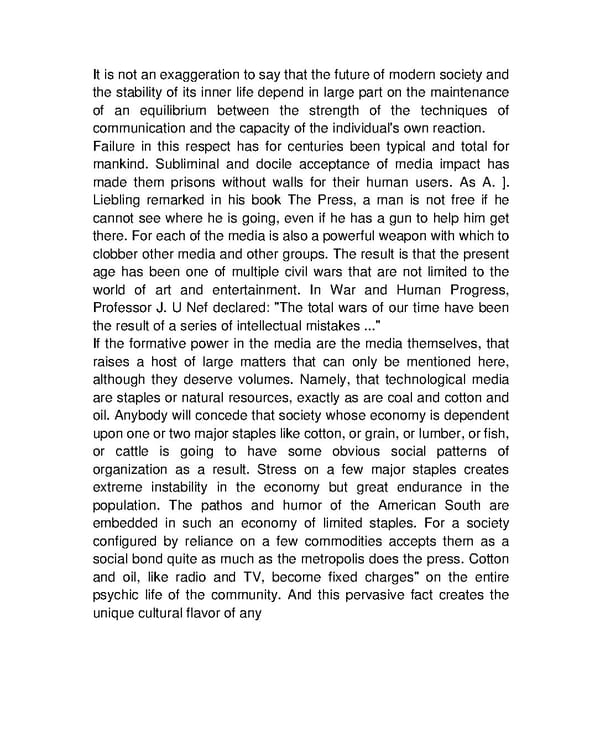It is not an exaggeration to say that the future of modern society and the stability of its inner life depend in large part on the maintenance of an equilibrium between the strength of the techniques of communication and the capacity of the individual's own reaction. Failure in this respect has for centuries been typical and total for mankind. Subliminal and docile acceptance of media impact has made them prisons without walls for their human users. As A. ]. Liebling remarked in his book The Press, a man is not free if he cannot see where he is going, even if he has a gun to help him get there. For each of the media is also a powerful weapon with which to clobber other media and other groups. The result is that the present age has been one of multiple civil wars that are not limited to the world of art and entertainment. In War and Human Progress, Professor J. U Nef declared: "The total wars of our time have been the result of a series of intellectual mistakes ..." If the formative power in the media are the media themselves, that raises a host of large matters that can only be mentioned here, although they deserve volumes. Namely, that technological media are staples or natural resources, exactly as are coal and cotton and oil. Anybody will concede that society whose economy is dependent upon one or two major staples like cotton, or grain, or lumber, or fish, or cattle is going to have some obvious social patterns of organization as a result. Stress on a few major staples creates extreme instability in the economy but great endurance in the population. The pathos and humor of the American South are embedded in such an economy of limited staples. For a society configured by reliance on a few commodities accepts them as a social bond quite as much as the metropolis does the press. Cotton and oil, like radio and TV, become fixed charges" on the entire psychic life of the community. And this pervasive fact creates the unique cultural flavor of any
 Understanding Media by Marshall McLuhan Page 27 Page 29
Understanding Media by Marshall McLuhan Page 27 Page 29